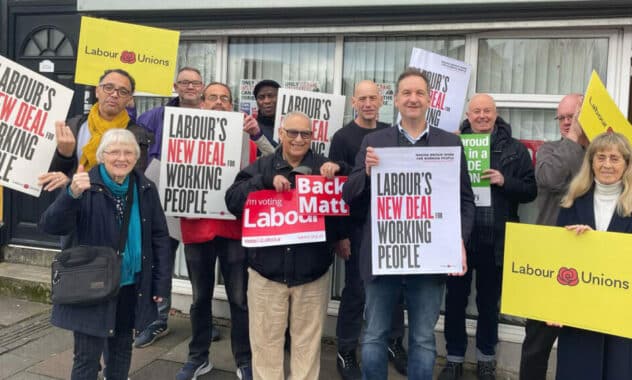Row rumbles on as business leaders line up against a ‘full fat’ New Deal for workers
Labour faces pressure to water down its plans

A row over Labour’s planned ‘New Deal for Working People’ has unfolded in the pages of The Times, as business leaders have expressed concerns about the possibility of a ‘full fat’ employment rights packaged being presented to Parliament in the first 100 days of an incoming Labour government.
A number of business leaders have warned the party that a comprehensive package of reforms, which would include the scrapping of anti-strike legislation, banning of zero hours contracts, basic rights from day one, the introduction of sectoral collective bargaining and increased acces to workplaces, could undermine economic recovery and place “uneccesary burdens” on business.
The kickback, which began with the new CBI President, Rupert Soames’ intervention earlier this month – when he argued for a softening of Labour’s approach – came in response to plans reiterated by Labour’s deputy leader Angela Rayner recently, contained in the ‘New Deal for Working People’ paper, which was developed by Andy McDonald MP in conjunction with the IER. The New Deal contains many of the principles of Labour’s 2017 and 2019 manifestos – which placed a resetting of the industrial relations landscape at it’s heart.
At Labour annual conference last year, RMT general secretary Mick Lynch called for what he named a “full fat, undiluted workers deal.” Lynch argued that what was needed was:
“sector-wide bargaining” in the NHS and in every sector, saying “that’s what they have in Europe, it goes into every work place, whether they are the mainstream organised company or not”.
IER Chair John Hendy KC echoed those sentiments, saying:
“We are not going to be content with just the soup and the pudding, we want the full three course meal.”
Those comments came as labour movement critics voiced concerns that the party was back-tracking on vital aspects of the Deal in the wake of the National Policy Forum discussions in the summer of 2023. Now, it appears that business leaders are lobbying the current Labour leadership to water down these proposals further.
Alex Hall-Chen, of the Institute of Directors, told the Times:
“The concern we have is that if Labour went ahead with the ”full fat” version of some of these proposals they will impose very significant costs on businesses at a time when many companies are struggling with a difficult trading environment.
Labour needs to make sure that the result of these changes is not that British firms become uncompetitive.
These changes are not something that should be rushed through in a hundred days. They need to be considered and thought through.”
And Jane Gratton, from the British Chambers of Commerce, added:
“We have made clear that a balance must be struck to give employers the flexibility to respond to challenges and opportunities. To protect jobs and the economy, any changes to legislation must be proportionate and affordable.”
Commenting on the reports, TUC General Secretary Paul Nowak said:
“Employers need to get on board with Labour’s New Deal for Working People – and good employers will. 14 long years of Conservative government have seen an explosion in low-paid, insecure work – with almost 4 million people in insecure jobs and over 1 million on zero hours contracts.
Living standards have been battered – and after months of stagnating, our economy has slipped into recession. The UK’s long experiment with a low-rights, low-wage economy is a complete failure. The Tories’ lack of an economic plan for jobs, growth and living standards has cost workers and industry dear.
Labour’s New Deal for Working People stands in stark contrast to the Conservative’s dire record. A ban on zero hours contracts, an end to fire and rehire, and stronger flexible working rights – these are just some of the transformative policies Labour is promising with an employment bill in its first 100 days.
And it would be good for our economy too. Decent, secure jobs are essential to building a motivated, healthy, innovative workforce – all vital for high productivity growth. That’s why good employers will embrace Labour’s economic reset and work with unions to boost productivity, skills and security at work.”







